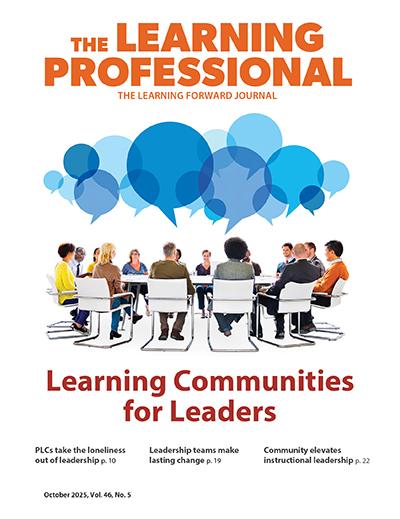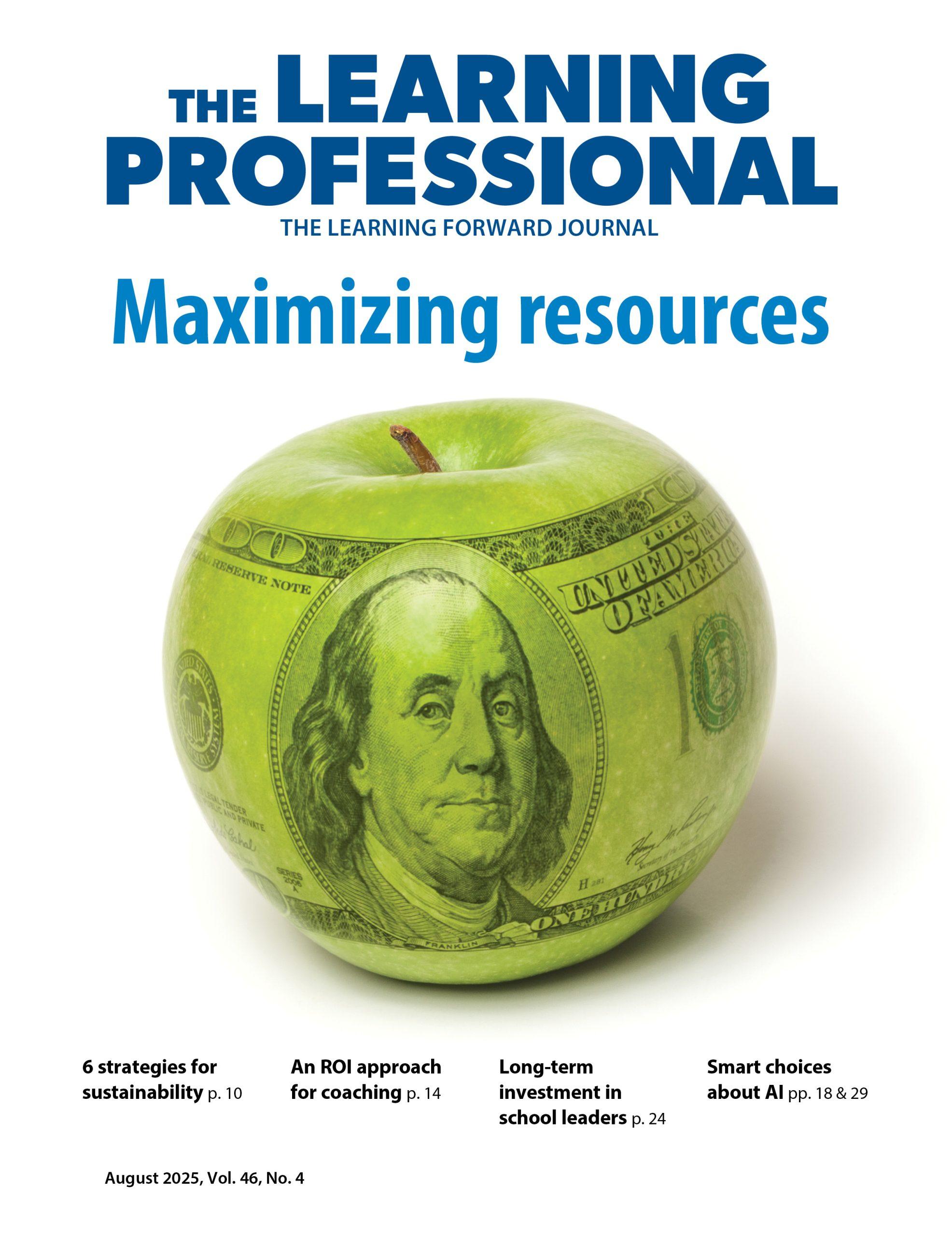Power Tools For Talking
Custom protocols enrich coaching conversations
By Learning Forward
Categories: Coaching, Collaboration, ImplementationFebruary 2015
Read the remaining content with membership access. Join or log in below to continue.
Sed ut perspiciatis unde omnis iste natus error sit voluptatem accusantium doloremque laudantium, totam rem aperiam, eaque ipsa quae ab illo inventore veritatis et quasi architecto beatae vitae dicta sunt explicabo. Nemo enim ipsam voluptatem quia voluptas sit aspernatur aut odit aut fugit, sed quia consequuntur magni dolores eos qui ratione voluptatem sequi nesciunt. Neque porro quisquam est, qui dolorem ipsum quia dolor sit amet, consectetur, adipisci velit, sed quia non numquam eius modi tempora incidunt ut labore et dolore magnam aliquam quaerat voluptatem.
Resources for Adopting and Adapting Protocols for Adult and Student Work
| Resources for adopting and adapting protocols for adult and student work |
| School Reform Initiativewww.schoolreforminitiative.org
Literacy Coaching Clearinghouse Tools www.literacycoachingonline.org/tools.html Project Zero’s Visible Thinking Routines www.visiblethinkingpz.org EngageNY Teaching Practices & Protocols www.engageny.org/resource/grades-3-5-ela-curriculum-appendix-1-teaching-practices-and-protocols Continuum of Protocols https://schoolreforminitiative.org/doc/continuum_discussion_protocols.pdf Specific Protocols used in this project Carousel brainstorm: For generating and displaying a group’s ideas on multiple topics. www.engageny.org/sites/default/files/resource/attachments/carousel_brainstorm_protocol.doc Collaborative assessment conference: For looking deeply at student work. www.schoolreforminitiative.org/doc/cac.pdf |
References
Ippolito, J. (2010). Three ways that literacy coaches balance responsive and directive relationships with teachers. The Elementary School Journal, 111(1), 164-190.
Ippolito, J. (2013). Professional learning as the key to linking content and literacy instruction. In J. Ippolito, J.F. Lawrence, & C. Zaller (Eds.), Adolescent literacy in the era of the Common Core: From research into practice (pp. 215-234). Cambridge, MA: Harvard Education Press.
Ippolito, J. & Lieberman, J. (2012). Reading specialists and literacy coaches in secondary schools. In R.M. Bean & A.S. Dagen (Eds.), Best practices of literacy leaders: Keys to school improvement (pp. 63-85). New York, NY: Guilford Press.
Ippolito, J. & Pomerantz, F. (2013/2014). Protocols as essential tools for literacy professional learning communities in the Common Core era. Massachusetts Reading Association Primer, 42(2), 44-55.
Peterson, D.S., Taylor, B.M., Burnham, B., & Schock, R. (2009). Reflective coaching conversations: A missing piece. The Reading Teacher, 62(6), 500-509.
Learning Forward is the only professional association devoted exclusively to those who work in educator professional development. We help our members plan, implement, and measure high-quality professional learning so they can achieve success with their systems, schools, and students.
Categories: Coaching, Collaboration, Implementation
Recent Issues
MAXIMIZING RESOURCES
August 2025
This issue offers advice about making the most of professional learning...
MEASURING LEARNING
June 2025
To know if your professional learning is successful, measure educators’...
NAVIGATING NEW ROLES
April 2025
Whether you’re new to your role or supporting others who are new,...
LEARNING DESIGNS
February 2025
How we learn influences what we learn. This issue shares essential...









